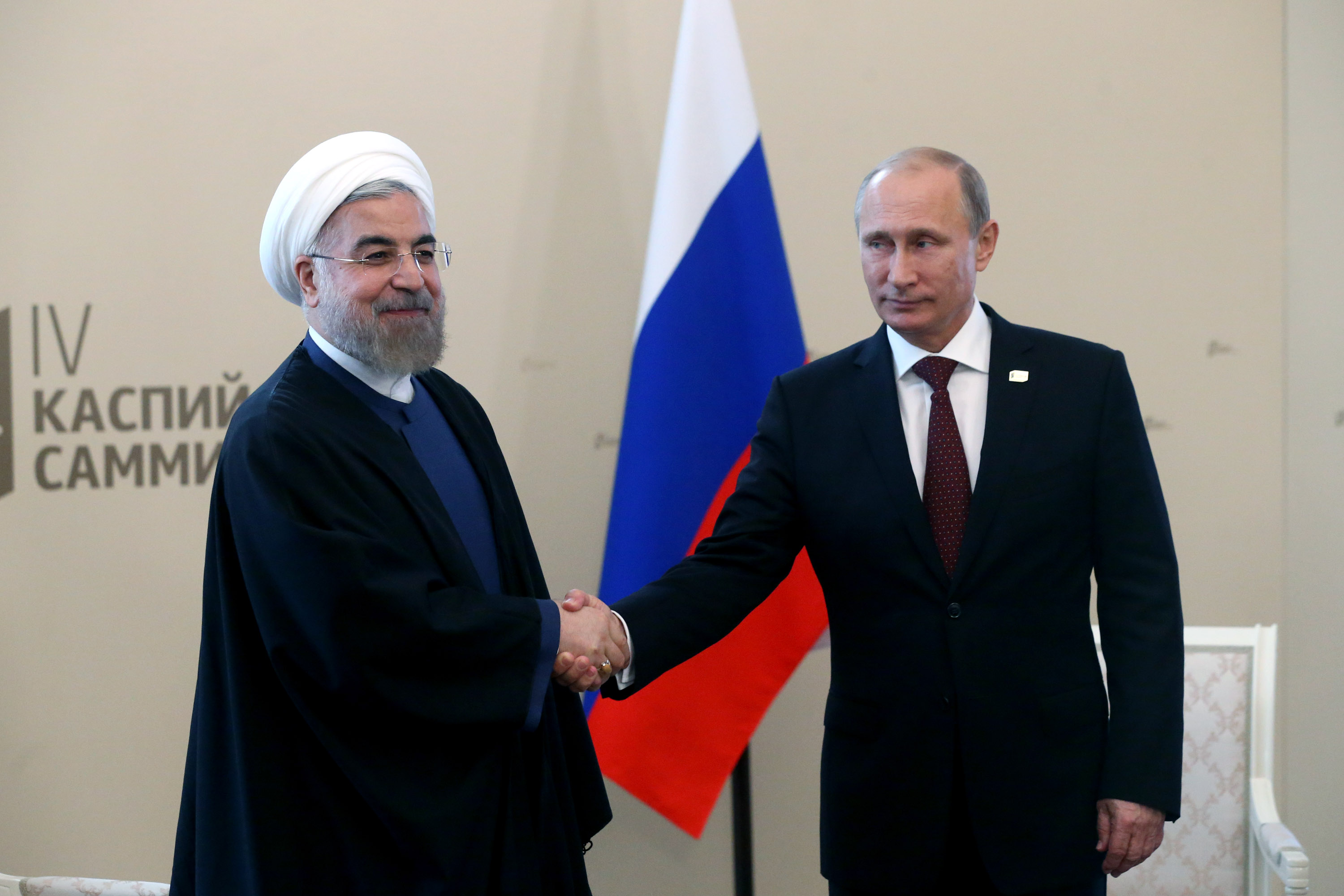Four months have passed since the Russian invasion of Ukraine and it has had wide-ranging implications for geopolitical and geoeconomic trends in the Middle East. The war could lead to the emergence of new strategic vacuums in conflict zones across the region while reshaping Russian relations with energy players in the Middle East, including Iran. Beyond the immediate assumption that the war will create new opportunities for cooperation between revisionist powers like Iran and Russia, it has also given rise to new potential conflicts of interest.
In the second in a series of events dedicated to analyzing the implications of the war in Ukraine on Russia-Iran relations, the Middle East Institute (MEI) will bring together a panel of experts to provide a detailed picture of how the war might create new areas of competition and rifts between Moscow and Tehran. Renowned experts will discuss key questions, including: What do Moscow’s adjustments in Syria mean for Tehran, and how might they impact bilateral cooperation? How does Moscow see the future of its energy policy, and how could that affect relations with Iran? Can ideological and identity factors compensate for the security and economic conflicts of interest that the war has created between Moscow and Tehran?
Speakers
Jakub M. Godzimirski
Professor at Norwegian Institute of International Affairs (NUPI)
Diana Galeeva
Visiting Fellow, Oxford University
Hamidreza Azizi
CATS Fellow, SWP Berlin
Abdolrasool Divsallar, moderator
Non-resident Scholar at MEI
Five Key Takeaways
-
The war in Ukraine has revealed complex relations between Russia and Iran: Russia and Iran have a shared anti-Western agenda, are suspicious of international institutions and oppose the liberal world order. Russia and Iran also have corresponding national identities and a shared Muslim identity, particularly in Russia’s Tatarstan. Geopolitical shifts since the beginning of the war in Ukraine have created chances for Iran and Russia to explore opportunities for further relationship building and collaboration
-
The reality of sanctions has drawn Iran and Russia closer together: As uniquely sanctioned countries, trade between Iran and Russia has grown significantly. Together, Iran and Russia challenge the established global financial system by engaging in increased trade.
-
As Russia moves resources away from Syria to Ukraine, opportunities for collaboration with Iran have become apparent: Since the beginning of Russia’s invasion of Ukraine there have been reports of Russian troops withdrawing from some positions in Syria, particularly in Central Syria, to refocus military resources in Europe. As Russia pulls back from Syria, Iran has been filling the vacuum in some of these areas. Although some have been inclined to frame the shifting dynamics in Syria as an example of competition between Iran and Russia, Hamidreza Izizi characterized developments as an example of Russian-Iranian collaboration. Russia sees its efforts in Syria as an important symbol of its post-Soviet restoration of power, so it is in Russia’s interest to coordinate with Iran on the war in Syria.
-
The Iran-Russia relationship is best understood as a tactical partnership: There is a potential for a more active American presence in Syria, a Turkish reemergence, and an ISIS revival. Russia and Iran are mutually interested in combating these trends. Their partnership consists of immediate tactical and military measures, but is not likely to expand significantly to the political and economic spheres. Ultimately, Moscow is more concerned with addressing immediate strategic concerns than building longer-term strategic partnership with Iran. Russia will likely continue to position itself as an intermediary between Gulf states and Iran.
-
In the energy sphere, Russia and Iran have overlapping and potentially conflicting interests: Both Russia and Iran are key oil exporters to China. Because of the effects of international sanctions, both countries rely on revenues from oil exports to China. While there isn’t currently a conflict of interest in Russian and Iranian energy sales, tensions regarding access to Chinese markets could grow in the future.
Detailed Speaker Bios
Jakub M. Godzimirski
Jakub M. Godzimirski has been working on Russian foreign and security policy issues at NUPI for more than 20 years, paying special attention to the role of energy resources in Russian grand strategy. In addition he also has worked on European policy and its impact on developments in Central and Eastern Europe, including relations with Russia.
Diana Galeeva
Dr. Diana Galeeva is currently an academic visitor to St. Antony’s College, University of Oxford, having previously also been a scholar-in-residence at the Oxford Centre for Islamic Studies. As an academic visitor to St. Antony’s College, she is working on the research “Russia and the GCC: The case of Tatarstan’s paradiplomacy.” The project explores the developments of relations between the Russian Republic Tatarstan and the Gulf states under the USSR and modern Russia.
Hamidreza Azizi
Prior to becoming a CATS Fellow at SWP Berlin, Hamid Reza Azizi was an Alexander von Humboldt Fellow in the Africa and Middle East Research Division at SWP Berlin. Azizi has also served as an assistant professor of regional studies at Shahid Beheshti University in Tehran and a guest lecturer in the Regional Studies Department at the University of Tehran.
Abdolrasool Divsallar, moderator
Abdolrasool (Farzam) Divsallar is a political scientist working on the Middle East regional security system with a focus on Iran. He is a visiting professor of Middle Eastern studies at the Higher School of Economics and International Relations (AZERI) at Università Cattolica del Sacro Cuore in Milan and a non-resident scholar with MEI's Iran Program. Divsallar co-founded the Regional Security Initiative (RSI) at the Middle East Directions Programme in the European University Institute (EUI) in 2020. Between 2005 and 2019 he worked in Iran as a senior fellow at the Institute for the Middle East Strategic Studies, researcher at the Defense Industries Training and Research Institute, and non-resident researcher at the Center for Strategic Studies of the Expediency Council.
Photo by Sasha Mordovets/Getty Images












